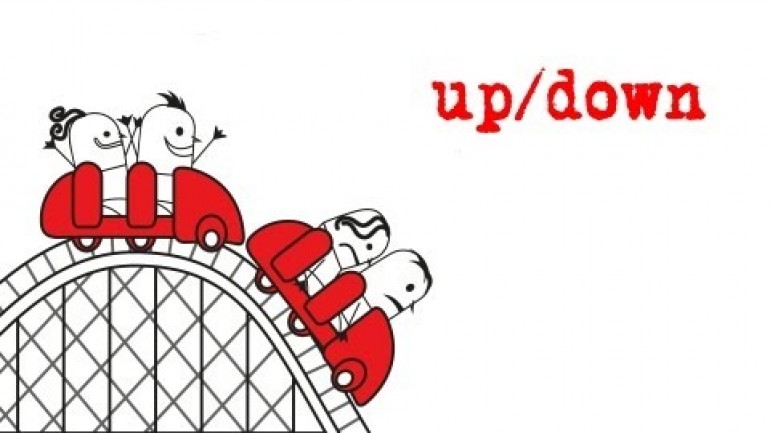There are approximately 5.7 million people in the United States with bipolar disorder. In an attempt to eliminate the mystery and misinformation surrounding the illness, many throughout the country diagnosed with this condition were interviewed extensively. They diligently explain the struggle to balance themselves between floating to a state of euphoria and sinking to a devastating depression.
In short, “Up/Down” is a personal analysis of bipolar disorder from those living with it. Looking for something with a more scientific or clinical angle? Try a textbook.
“Bipolar disorder is just one of many mental illnesses that is still highly stigmatized in our culture today, and ‘Up/Down’ could certainly be instrumental in changing that fact.” – Microfilmmaker Magazine, Issue 65




This is a great documentary. ..it sheds a lot of light on this illness, from the actual patients point of view, in their own words. I teared up a few times and just wanted to give each of these people a big hug. People really need to see this doc to get a better understanding that yes, this is an illness, but these are human beings, with feelings, like everybody else, they’re just ‘wired’ a bit differently, and deserve just as much compassion, if not more. ..because they have a very difficult and misunderstood disorder, but still have a lot to give. Thank you for this doc. ..very enlightening. I give it a 10. ??
I really felt validated to hear others talk about manic depression. I am and my mom was. I usually sit at hypomanic– almost never depressed, but perilously close to full mania. I was troubled in this film, by how often people ascribed manic depression to moods: I feel happy, I feel sad…Manic depression is not about those kinds of moods, at least not for me, its about states that have alot of heft and complexity.. there are highs and lows that are on a continuum both above and below “baseline”. I can, at one end, be controlled but I can easily sneak to the other end and be psychotic. Not often thankfully, but my antennae are always up. For me, in my bipolar experience, It is about functionality. I have times when I am wildly non-functional and when I am quietly competent The confusing time is when they are within 1 min. of each other, one hour, one day. I am frequently angry if I am either mixed-or rapid- cycling.For me, functionality can be high or low when I am above “baseline” or below. Suicidality (as my psychiatrist calls it) can also be above or below.”baseline” The notion of “mood” as it relates to happy or sad does not adequately encompass something that I sometimes can’t get control of for months and/or have to have those antennae up so I won’t self sabotage… Hypomania fueled me for many years– I love it. But now at 50 going through menopause, I am re-setting my metabolism and trying to get me on a post menopause regimen. I’t as hard as the first time I tried to find a cocktail that worked. Cheers!
If they’re trying to give a rounded view of people with bi polar why did they use all the wacky type people to interview? Anyone could”ve picked the bi polar ones in a line up. The echo in the narrators voice is so cliche
the echo irritated me so much i had to stop. why did they have to put in an echo only to lower the volume of the narrator’s voice? pissed me off.
This documentary was really good and brillant! It made me cry because I could relate so much to the stories because I have bipolar disorder. The interviews were candid, truthful,gut wrenching and relatable. Thank u to the director kyle.